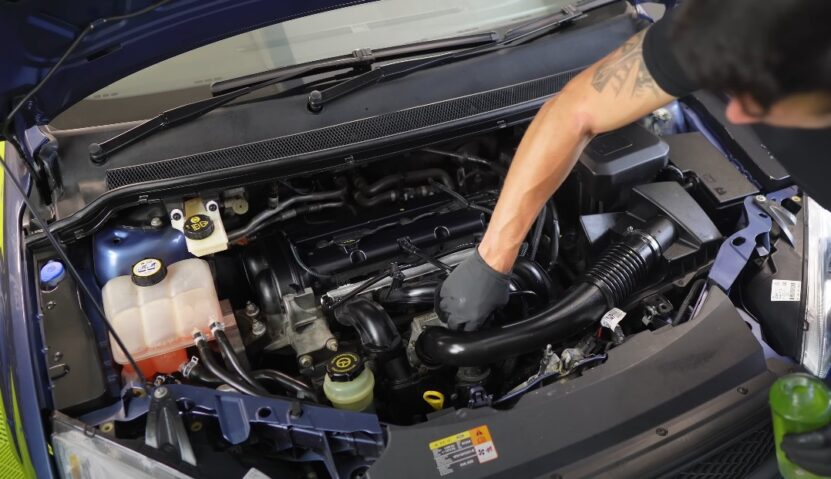
Share Post:
Engines are like the heartbeat of your car, quietly working under the hood to keep you moving. But just like any hardworking part, they need care.
A clean engine isn’t just about looks—it can make your car perform better, last longer, and even be easier to maintain.
But how do you decide when to roll up your sleeves, when to go for heavy-duty cleaning, or when to leave it to the experts? Let’s break it down in a way that’s easy to follow.
Table of Contents
ToggleWhen to Call a Pro
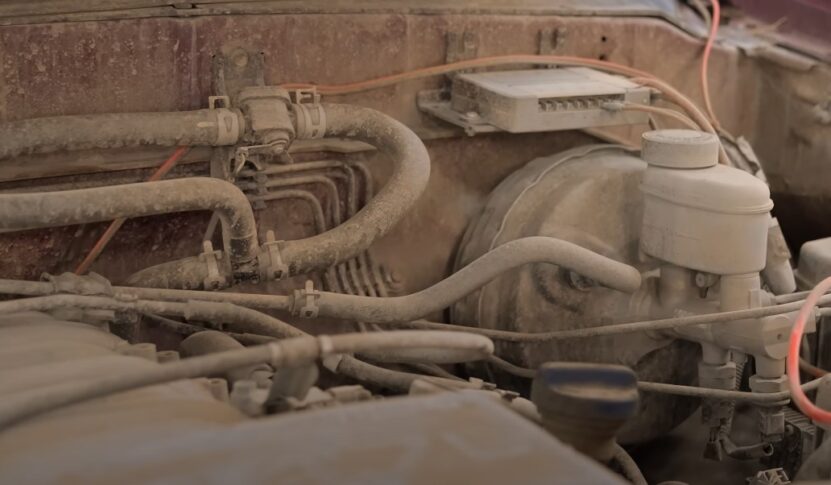
There are times when cleaning your engine yourself might not be the safest or smartest choice.
In situations where your engine’s cleanliness is critical, and DIY approaches fall short, turning to professionals like Jenfab Cleaning Solutions is a wise choice.
Consider professional help if:
- It’s Caked in Grime: Thick layers of sludge are hard to tackle without specialized tools.
- Lots of Electrical Components: Modern engines can have intricate wiring that’s easy to damage.
- You’re Unsure: If you’re hesitant, let an expert handle it to avoid costly mistakes.
- You Need a Deep Clean: Tools like dry ice blasters or industrial-grade steam cleaners are best left to professionals.
You Need to Keep Your Engine Clean
An engine caked with grease and dirt doesn’t just look neglected; it can lead to real problems, like engine malfunction. Here’s why giving it some attention is worth your while:
- Better Performance: Dirt and grime can interfere with moving parts. A clean engine operates more efficiently, meaning your car runs smoother.
- Longer Lifespan: Grease buildup can trap moisture and other corrosive elements, wearing out engine parts over time.
- Spotting Problems Early: Leaks and wear are easier to see on a clean surface, so you can catch issues before they escalate.
- Improved Resale Value: A well-maintained engine bay speaks volumes to potential buyers about how you’ve cared for your car.
There Are Situations When You Can DIY
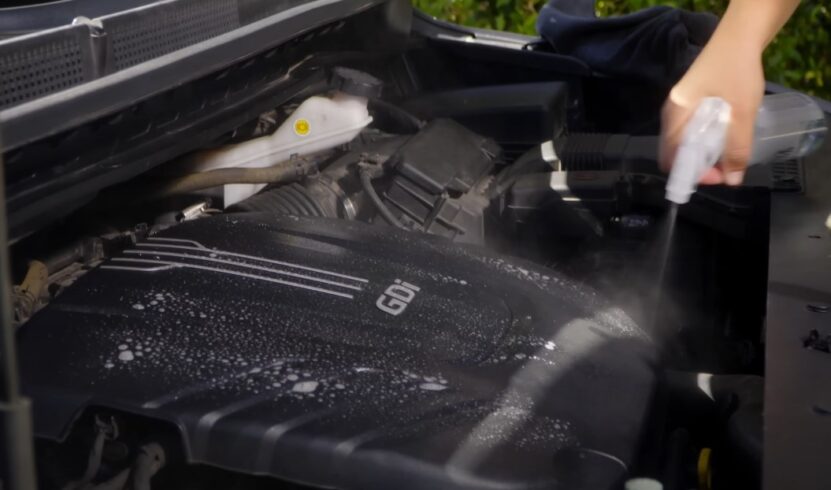
DIY cleaning isn’t as intimidating as it sounds, but there are limits. Here’s when you can safely grab your tools:
- Light Dirt and Grime: Dust, minor oil stains, or other surface-level messes are fair game for a home clean.
- Routine Maintenance: Adding cleaning to your regular car care routine helps prevent tougher messes down the road.
- Familiarity with Car Basics: If you’re comfortable with basic tasks like topping off fluids or changing oil, engine cleaning is a natural next step.
Methods for DIY Engine Cleaning
1. Manual Wiping
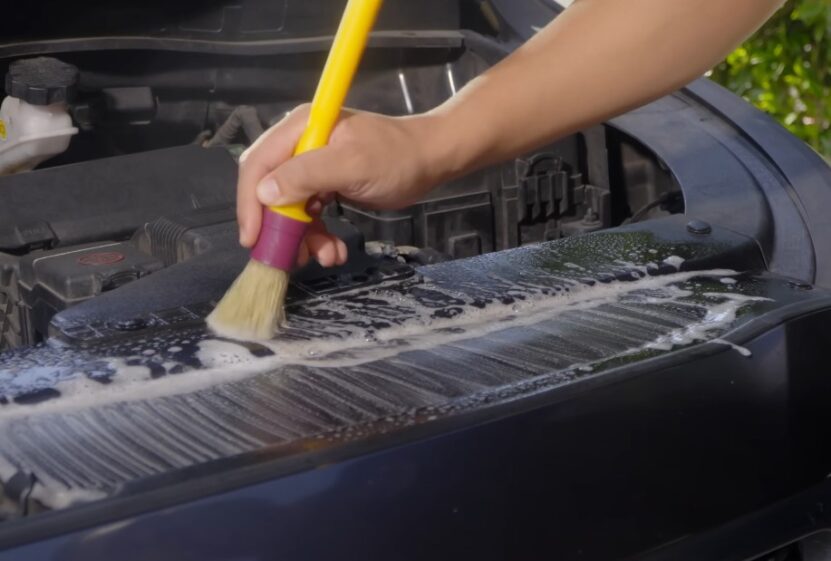
For light dirt and grime, manual wiping works wonders.
What You’ll Need
- Microfiber cloths
- Mild all-purpose cleaner
- Soft brush
How to Do It
- Make sure the engine is completely cool.
- Disconnect the battery and cover components like the alternator and air intake with plastic bags or foil.
- Spray the cleaner onto the cloth (not the engine directly) and wipe surfaces clean.
- Use the brush to reach tricky spots.
- Remove covers and let the engine air dry.
2. Degreasing and Rinsing
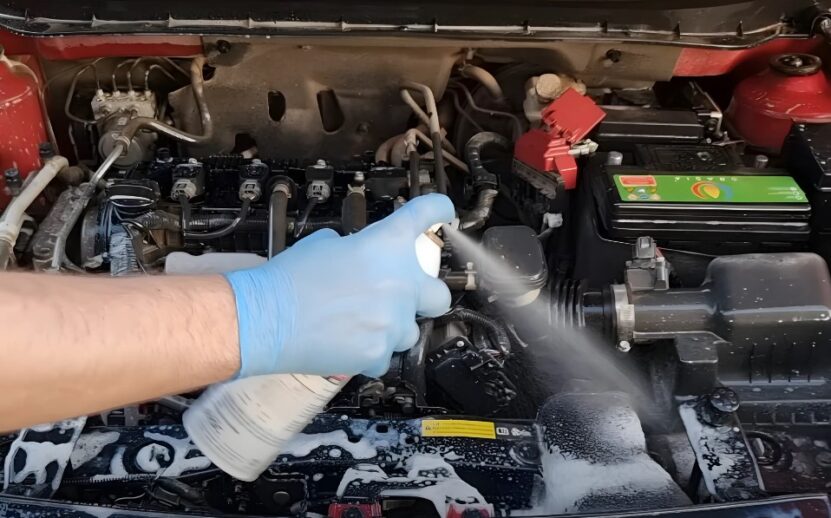
If you’re dealing with moderate grease buildup, this method delivers.
What You’ll Need
- Engine degreaser
- Soft-bristled brush
- Garden hose with spray nozzle
- Gloves and safety glasses
Steps
- Start with a cool engine and cover sensitive areas.
- Spray degreaser evenly across greasy spots and let it sit for a few minutes.
- Scrub the grime with your brush.
- Gently rinse using a low-pressure hose, avoiding direct sprays at electrical parts.
- Remove covers and let the engine dry, or start the engine briefly to help evaporate water.
Advanced Methods
Sometimes basic cleaning won’t get the job done. Here are some advanced options:
Steam Cleaning
- How It Works: Uses hot steam to dissolve dirt and grease.
- Pros: Chemical-free, eco-friendly, and great for tight spaces.
- Cautions: Risk of moisture getting into electrical parts if not done carefully.
- Best For: Heavy grease buildup, but only if you’re confident with the equipment.
Dry Ice Blasting
- How It Works: Shoots CO₂ pellets to clean without residue.
- Pros: Non-abrasive and leaves no mess behind.
- Cons: Expensive and requires specialized expertise.
- Best For: Thorough cleaning of high-end or vintage cars.
Tips for Cleaning
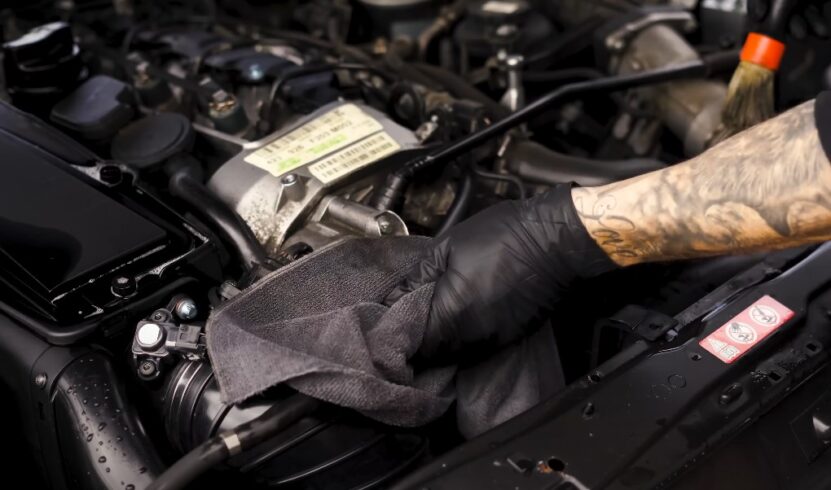
Whether you’re doing it yourself or hiring a pro, safety should always come first:
- Start with a Cool Engine: Avoid burns and prevent cleaning products from evaporating too quickly.
- Protect Sensitive Areas: Cover electrical parts and air intakes with plastic or foil.
- Wear Protective Gear: Gloves, safety glasses, and appropriate clothing are essential.
- Work in Ventilation: Ensure plenty of airflow to avoid inhaling fumes.
- Dispose Properly: Don’t toss used rags and chemicals into the trash; check local guidelines for disposal.
Avoiding Common Problems
Even with the best intentions, mistakes happen. Here’s how to avoid the most common ones:
- Skipping Covers: Failing to protect sensitive parts can result in costly damage.
- Using Harsh Cleaners: Stick to products designed for automotive use.
- Leaving Water Behind: Residual moisture can lead to rust or electrical issues.
- Using High-Pressure Water: Strong sprays can push water into seals or gaskets, causing trouble down the line.
Simple Ways to Maintain a Clean Engine
@nsn.autodetailing clean your engine bay 🙄 #cardetailingvideos #cardetailing #tipsandtricks #satisfyingvideo #foryou #fyp ♬ Ritmada Relaxa Vida – DJZRX & launch13 & rodricci
Keeping things tidy doesn’t always require a full cleaning session. Regular habits can help:
- Wipe down visible parts every so often to prevent buildup.
- Address leaks promptly to stop grime from accumulating.
- Use engine covers to reduce exposure to dirt.
- Avoid driving through deep water, which can introduce hard-to-remove contaminants.
Signs It’s Time for Professional Cleaning
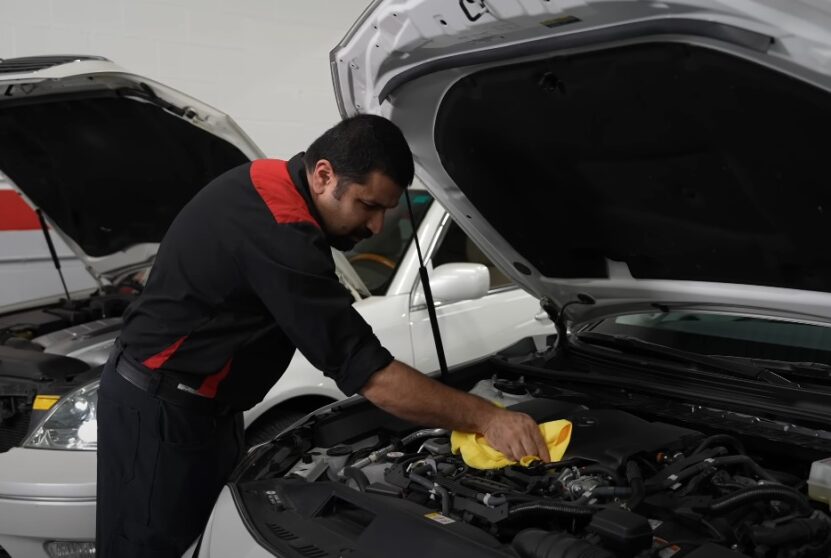
Still wondering if your engine needs expert care? Look for these clues:
- Persistent Odors: Smells of burning oil or chemicals can point to grime or leaks.
- Sluggish Performance: Dirt may be affecting engine function.
- Visible Build-Up: Thick grease or sludge is hard to handle on your own.
- Overheating: Dirt blocking airflow can lead to cooling problems.
Wrapping Up
A clean engine can do wonders for your car’s performance and longevity, and it doesn’t have to be complicated. For minor grime, DIY methods like manual wiping or degreasing work well.
But when the mess gets bigger or you’re dealing with intricate components, calling in the pros is a smart move. Also, check how to restore the gloss on older BMW models.
Whatever approach you choose, staying on top of engine cleanliness will pay off in better performance, fewer issues, and a longer-lasting ride. Take care of your car, and it’ll take care of you.
Related Posts:











